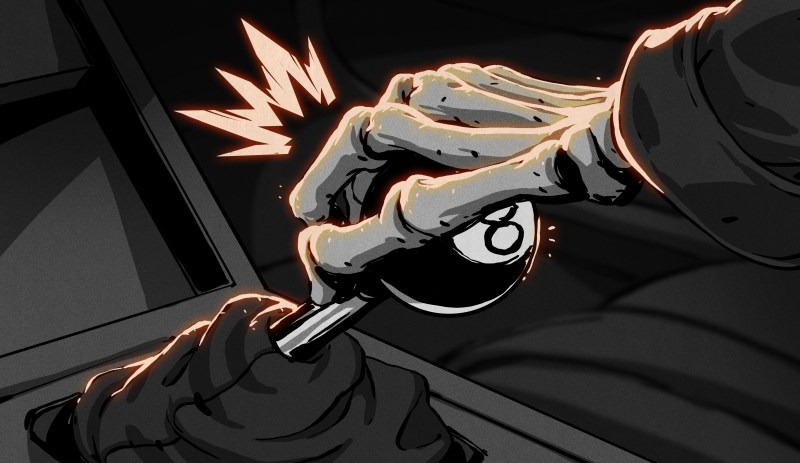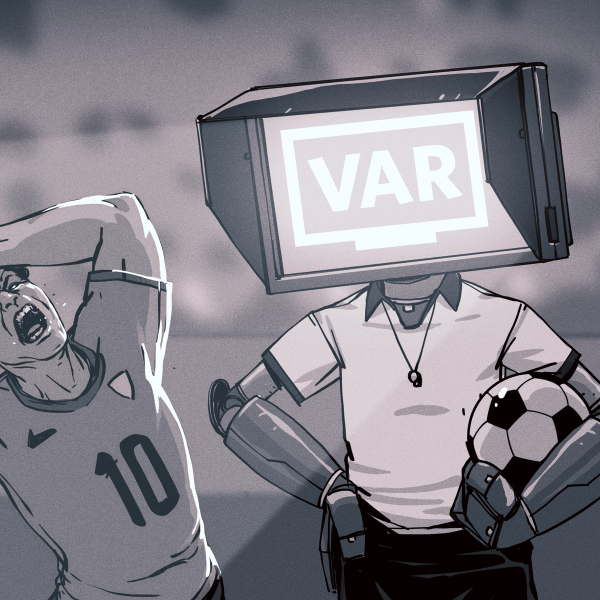Call me crazy, but I’m ride or die for manual transmissions. I drove enough go-karts and played enough Pole Position as a kid to know that shifting the gears yourself is simply where it’s at when it comes to tooling around in anything that isn’t human-powered. After all, manuals can be roll-started. A driver has options other than braking and praying on slippery roads. Any sports car worth its rich Corinthian leather (or whatever) has a manual transmission, right? And you know that Rush’s Red Barchetta ain’t no automatic. Face it, shifting gears is just plain cooler. And it’s not a chore if it gets you more, although the fuel efficiency thing is a myth at this point.
You can imagine then my horror at the idea that someday within my lifetime, most cars will be twist-and-go electric go-karts. As the age of the combustion engine appears to draw to a close (no, seriously this time), there’s just one thing keeping the door open — marked enthusiasm for manual transmissions. From Audi to the Nissan Z, automakers report that the take rate for manual transmissions is quite high in the US, despite the death knell that has been tolling for two decades or so. Two models of Honda Civic are manual-only. This phenomenon isn’t restricted to sports cars, either — the 2022 Ford Bronco comes in a seven-speed manual, and has seen a take rate over 20%.
The Soullessness of a New Machine
The EV just seems so soulless to me, and I know I’m not alone in this. In a regular car, you’re just more in tune with what’s going on. There are sights and smells. Noises galore. I’m not saying that EVs don’t have their sensory landmarks, I just believe they are a different breed. Not a new breed, of course — electric cars have been around almost as long as combustion models. But obviously, the landscape is changing and has been for about 20 years now.
We don’t wax lyrical about paddle shifters as we do about manual gearboxes. — Henry Catchpole, automotive journalist
Electric cars may be powerful and have a ton of instantly available torque, but it’s just not the same experience. There’s no engagement, no feeling like you are one with the car. And besides, how often are you out there redlining your engine or testing the 0-60? Oh, never? That’s what I thought.
Realistically, those things don’t matter unless you’re a professional driver on a closed course. As Bob Sorokanich, editor-in-chief of Jalopnik said, “Tesla has the quickest car on the market — just floor the accelerator and hang on. It doesn’t take any driver skill.”
Now, doesn’t that just about sum it up? ‘Doesn’t take any driver skill’. Shouldn’t it, though? In the hundred and thirty or so years of the automobile, the one thing we haven’t managed to make safer is our interactions with each other on the road. Sure, we have speed limits now, and roll cages, and seat belts. But we’re all more distracted than ever, and we’re all still mostly human. So, does driving really need to be a place of convenience? I think not.
















There are benefits/drawbacks for each trans system. Manuals are still more efficient unless your like me and late everywhere u go. But even then it’s about the same as an auto. If your a conservative driver tho and u get a good feel for ur vehicles powerband, a basic 5speed will most def get u better mileage than even a variable timed 7 speed adaptable high tech computer controlled auto trans with the same size engine.
Also manual vehicles handle better. People that dont normally drive one wont believe this but when you’ve been driving a manual for years and years your able to negotiate turns and curves and push ahead into crowded traffic and use a low gear in high rpm to limit speed or slow down without braking or changing gears. It’s kinda like how martial arts experts describe wielding a weapon after years and years of training, the weapon ceases being an object and the tool becomes an extension of your body that you manipulate with the same articulation and proficiency as your hands arms and fingers.
Automatics do have some desirable advantages esp. When living in the city, they manage slow speeds and stop and go traffic much much better. Driving a manual in a traffic jam on the highway is tedious on a good day, and can go into the realm of torture if it’s a friday and your exhausted and just wanna get home. Parallel parking will also have autos taking 1st place.
Theres a lot of factors at play and it’s really just up to everyone to decide which system suits their driving needs the best. If your in a urban metro area and have to navigate mostly thru a crowded city, you’ll want an auto, if your in a more rural area and have to commute, you may prefer a manual. I just like the way manual trans give me better feel for my cars performance and let’s me drive in a way I can manipulate that performance to best suit the road conditions and traffic. (Ever drive in a heavy downpour on the freeway? A manual is your friend, a blizzard on a mountain pass, hmmm I’d take an auto there)
It’s also worth mentioning that auto trans have been around for years and years, yet they still lack the longevity and reliability of a manual. Sure it’s a lot easier to grind your geara to dust and fry your clutch if your inexperienced or abuse it to show off. But if you drive like a sane adult and treat the clutch like you handle your firstborn the 1st week it comes from the hospital, a manual transmission will last as long as 2 automatic transmissions. It sounds counterintuitive, but computers just dont have the same subtlety of control that a human does in a car they have driven for years.
The best wat I can describe it to techies is like the difference between transmissions is comparable to the difference between writing with a pencil and writing with a pen tablet, or playing a drum kit vs playing an electronic one.
Each has it’s own qualities that can serve specific applications or situations better than the other. However, the most important thing going forward with cars, above anything else……is simply having the option to buy one or the other. And u can have all kinds of screens and controls and electronically assisted systems optimized and tuned to specs the manufacturer swears on their unborn children will offer u the highest performance possible. But if it comes down to a newer luxury car with features and options, or an older model with less features but has a manual…..well all the available features in a car still dont weigh more than being able to drive the car in a way I think suits best.
I learned on manual of course but totally don’t mind automatic transmissions. I will say that I prefer non CVT as I do like to ride the pedal for shifts and like to feel the ridge of that. I can also see the actual need for manual for hauling things or off roading or hobbyist amateur track racing. I like being able to pay attention to the road or shift media or yell at the kids without having to mess with a gear stick. Aside from that and this will sound like an old fuddy duddy but the folks that have these stupid hellcats and other dickless repops drive like assholes. Not the “I was in Afghanistan and have rage problems so I will tailgate your grandma in my big ol truck” guy. That guy is a whole other type of idiot. Nah this guy is the guy that can’t handle rearwheel drive, likes to tear off the line at lights whipping in and out of traffic, and at about 930 every friggin night a couple of these idiots manage to blow out an engine or two trying to streetrace each other and cause all kinds of problems. So to that end those guys can get bent and get a nice quiet automatic EV that can hopefully be hobbled by the courts to putter around town like a golf cart. Otherwise my main concern will be bang for buck as far as mileage per charge and low to no maintenance and parts I feel comfortable as hell with servicing and replacing or modding to my needs. I am wondering why they havent pounded the shit out of the consumer boating industry since those can be easily refitted electric and won’t put exhaust into our lakes. All things take time I guess.
Is interesting, nobody seems to believe that Earth has a finite amount of copper. EV’s be damned and they will not be the end all savior. Why not EtOH? The gross excess of corn grown in the U.S. is a start. The corn we feed to cattle and should’nt at those massive feedlots in TX would cover the remaining demand. Europeans can have their EV’s, cows would get to eat like cows again, and Americans can put all our corn to good use, and keep on truckin!
“Is interesting, nobody seems to believe that Earth has a finite amount of copper.”
Very recyclable. That’s why the world has “copper thieves”.
I have only one thing to say: aluminium
I think the problem may be lack of overlap of new car buyers and those requiring manual transmissions. How many people buy a brand-new car with all the bells and whistles, but insist on a manual transmission, especially when the automatic will be under warranty for most of their term of ownership? Compare to the number of people who would rather buy a proven reliable car on the second-hand market and insist on the added utility, reliability (and discomfort) of a manual transmission.
The cost to repair an automatic transmission is just too high and risky on the used market (see Xterra “strawberry milkshake”). The result is a real lack of manual transmissions on the second-hand market where I think the demand for them seems greater.
I personally prefer a stick for towing. Modern 3/4 ton & 1 ton trucks with their automatic 6-10 gears get shifty and down/up shift too often. Not to mention, they cost a fortune to repair when something wears out. And with the million parts in a modern automatic tranny, they do.
> As the age of the combustion engine appears to draw to a close (no, seriously this time)
I highly doubt it’s coming to a close, there are millions of people who think EVs are a kind of scam and aren’t interested in them at all
At least if the EV tech is superior I think it will still take quite some time for ICE cars to be phased out
Por que no los dos? I have converted a NA Miata and a BMW E30 to electric with a manual and it’s the best of both worlds. Instant torque and you can row through the gears (2nd and 4th usually) using the clutch for fast shifts while on the track or twisties. But if you are stuck in traffic you can just leave it in 2nd or 3rd to give your left leg a rest and go from 0-40mph without touching the clutch pedal or shifter.
“Any sports car worth its rich Corinthian leather (or whatever) has a manual transmission, right?”
Wrong. On most modern sports cars, manual gearboxes are no longer available.
Modern automatic gearboxes are faster than manual, more fuel efficient, just as reliable and just as responsive and can be coupled with paddles for downshifting, so “braking and praying on slippery roads” is also no longer true. Just three or four gears as someone else wrote: also not true. A lot of comments here about automatic gearboxes would only be valid if this was 1989. Automatic transmissions have come a long way since.
Personally, I love the combination of my 5 liter V8 with a ZF 6HP six speed automatic. It is twelve years old, has done nearly 180.000 km / 122.500 miles. Around the 120k mark I had a preventive gear oil change done.
I can switch it to a sports setting, I can shift with paddles on the steering wheel. Usually I just don’t bother, tye car knows best.
Haven’t cooked a slushbox downshifting downgrade on the grapevine have you? Sign says use lower gears, torque converter gets very hot
Decrying that an electric motor doesn’t have a management feature that is only needed in combustion engines feels like a really weird hill to die on.
“I dislike Linux because I have developed so much skill in Windows registry editing”. Plenty of people will agree with this, but it says more about niche people than about the technology.
From the great white north and I’ve never owned an automatic. I have a Miata (MX-5) now and love it. 6 speed close ratio manual. Fun!
The 1st-gen Honda Insight was available in manual. With an upgraded battery and transmission (they had issues) it would be the best of both worlds without range anxiety.
I kind of gave up on the idea of manual transmissions when I realized the advantages of the ECVT in my last ICE car (a 2007 Prius). Great car, but when it started putting metal shavings in the oil pan at 289,000 miles, it was time to move on and I decided to go with the Model 3.
I do not regret my decision at all. I love the M3 and the features it has, but what has surprised me the most is all the things I love it not having… No transmission, No oil changes, No tuneups, Greatly reduced brake consumption rates, Incredibly lower $/mile ($17.50 for a 300+ mile charge vs. $60+ at current rates for the Prius), less noise (sure, there’s still some road noise and that super-annoying whoo-whoo for backing up, but nothing like ICE noise on the road).
I feel plenty in touch with what the car is doing when I am driving, but TBH, it’s gotten pretty good at driving itself most of the time and I actually really like that too.
I’m going to throw a couple of wrenches in the works because…heck, why not? These won’t be perfectly aligned with the overarching topic but I’ll do my best to tie it all together. Fair warning: I’m a car guy. Here we go…
The first, and least relevant, wrench:
When my current girlfriend and I were first dating, we rolled up on a red Ferrari with the top open – gorgeous! The traffic light had just turned red, he had to stop, and here we were side-by-side. I’m driving my girl’s 5-speed stick Subaru Forester. I rev the engine a couple of times. I’ll be honest, I was hoping he’d rev, too, just to hear those Italian horses shout. Instead, he glances over and then starts poking at the dashboard and fussing with the steering wheel. It was weird. Light turns green and I launch, figuring he’s doing the same.
I was just topping out second gear when he caught up and shot past, engine SCREAMING an aria and exhaust spitting literal fire with each automatic upshift, and rocketed ahead to the next traffic light. When we finally pulled up beside him, I rolled down the window and shouted, “What happened?” He laughed and shook his head and said, “Launch control! It takes a bit to set it up.”
He was depending on his car to do all the work for him. I’m a driver, an integral and immediate component of the driving process, and expected to have to make the go happen myself.
Neither of us is “wrong”, we’re just taking different paths to the same goal. I got the jump, he came back on the big end once he finished his conversation with the electronics.
(Semi) literal horses for courses, different approaches and intentions. That might sum up most of the conversation here: it’s not about which preference is “best”, but what choices we each – individually – make when we buy and operate our cars. There’s not a right or wrong equation, just choices.
(But I did get the jump.). :-P
The second wrench:
I also ride (and formerly raced) motorcycles. Electrification is happening more slowly in the only-two-wheels industry. There are good reasons: compared to cars, motorcycles are necessarily light and lithe. There’s not much room for a huge, heavy battery. Similarly, a motorcycle steers – functions really – partially in response to the operator’s weight and body position: e.g., you lean, it leans…and it has to lean in order to go around a curve or a corner at normal operating velocities. That doesn’t work if the energy storage system (fuel tank or battery) significantly outweighs the operator – and [influential deity of your choice] help you if you have to pick it up when it falls over.
So, electric motorcycles necessarily use small batteries that offer amazing performance, but briefly. After that, expect to spend about the same amount of time recharging as you spent riding – typically around an hour for each, varying by specific model and depending on how hard you ride, with faster, more aggressive riding vanishing electrons with great haste while charging times remain comparatively lengthy.
Morgan Gales, writing for “Cycle World” spent some time with the new LiveWire One electric motorcycle testing its livability (for lack of a better term) and usability: https://www.cycleworld.com/story/motorcycle-reviews/livewire-one-electric-motorcycle-road-trip-review/
The nickel gist is this: the bike is a little heavy despite its diminutive size, range is severely limited compared to traditional petrol-powered bikes, recharging is necessarily quite slow, and charging infrastructure isn’t great for riders – sitting in your expensive electric car playing video games or streaming video while recharging is ok; standing around in a parking lot while weather or circumstance try to make you miserable is very much not ok. And a ride that takes about three hours on a petrol burner can stretch to ten on electrons.
Whether you think this is relevant probably depends on where you live and what you do: in many countries scooters and motorcycles are the primary personal and professional transportation for the majority of the population. They deliver you to work and home, and deliver your pizzas and groceries, too.
Gales further noted that he eventually adapted to the bike:
“Motorcycles are freedom machines. They encourage exploration and often bring us to places that we would never go without them, destinations that we find ourselves at for no other reason than their proximity to twisty roads. At times, the LW1 took away this feeling, took away my desire to explore, especially if I was far from home. Destinations held special discounts, not scenic lookouts.”
Reading this particularly affected me: by dint of its limitations, the machine eventually controlled the operator. The machine (or its manufacturer) “decided”, based on *its* capabilities, that the operator’s freedom was now clearly specified within very narrow limits.
And this leads us back from our roundabout journey to the questions of functional ownership and involvement. For me, learning early on (in a questionable 1969 MGB that leaked everything – fuel, oil, coolant, exhaust fumes, rain, brake fluid, electrons, something that looked suspiciously like blood) how to drive a stick, use unboosted and decidedly NOT antilock brakes, how to control a skid, how to perform basic maintenance and repairs, etc., gave me much more control over possible outcomes and radically expanded my freedoms and choices. I became a better driver, a better owner and operator, and better able to assist others who were still learning. Everyone should have that opportunity to be challenged, especially in complex, risky endeavors, not because they are easy but because the challenge – the extra, the busy, the hectic, the complex – improves us rather than reduces us. It unlimits our freedom.